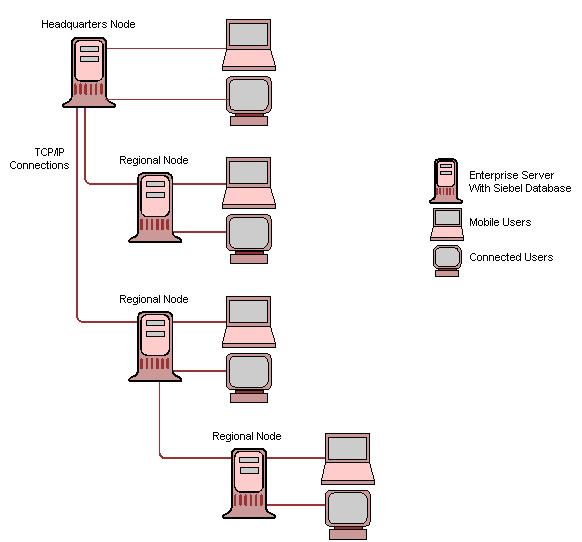Hierarchy of a Siebel Replication Manager Implementation
Replication Manager is a data replication technology that copies data throughout a network of Siebel nodes. It copies data that originates in the headquarters node (HQ) to multiple regional nodes. These regional nodes are subordinate to the headquarters node. It uses a hierarchical model.
A Replication Manager implementation includes a single headquarters node and one or more regional nodes. The headquarters node contains the master set of data that the regional nodes use. A regional node can possess one of the following types of relationships:
-
Subordinate to the headquarters node. The regional node synchronizes directly with the headquarters node.
-
Subordinate to a regional node. The regional node synchronizes directly with this regional node. A hierarchy of regional nodes is a hierarchy that includes a regional node that is a child node of another regional node.
Each subordinate node is a Siebel Enterprise Server that contains a subset of users from the Siebel Enterprise Server that resides on the parent node.
The following diagram illustrates an example configuration for Siebel Replication Manager. It includes the following items:
-
Two regional nodes that are children of the headquarters node.
-
One regional node that is a child node of a regional node.
